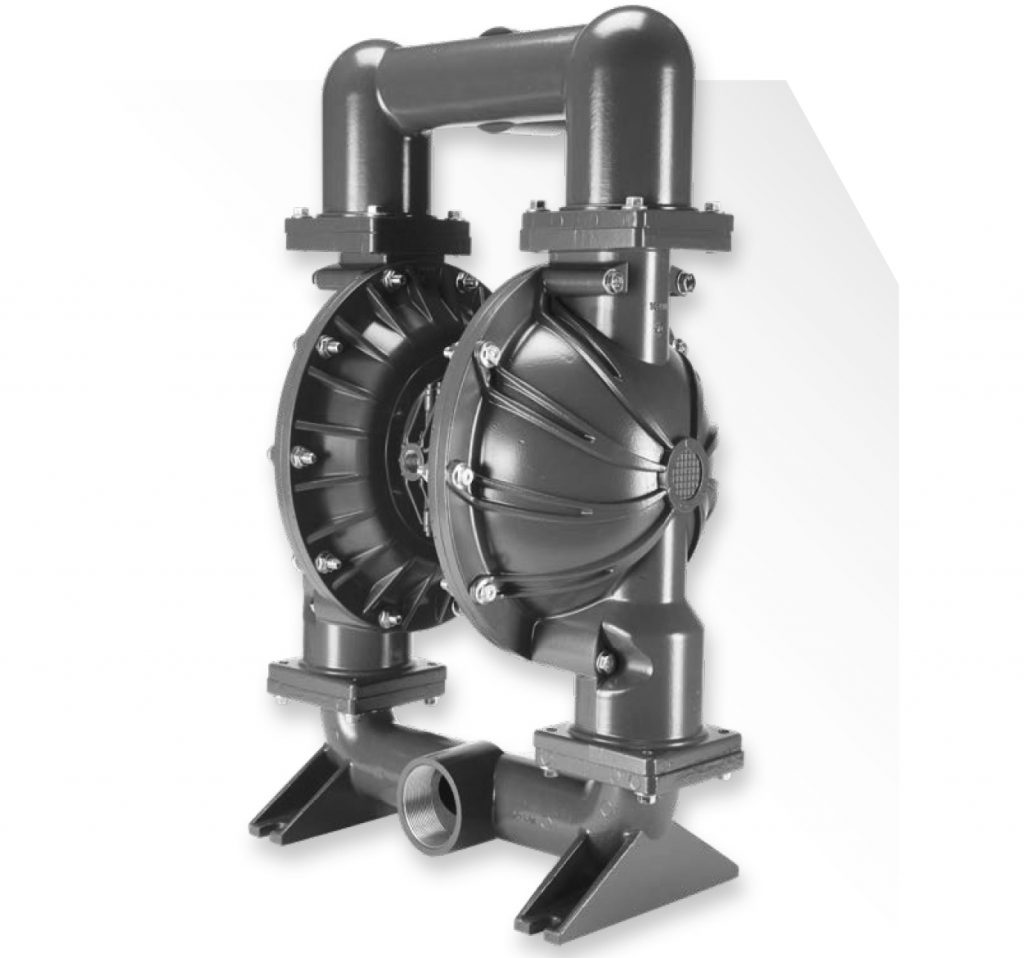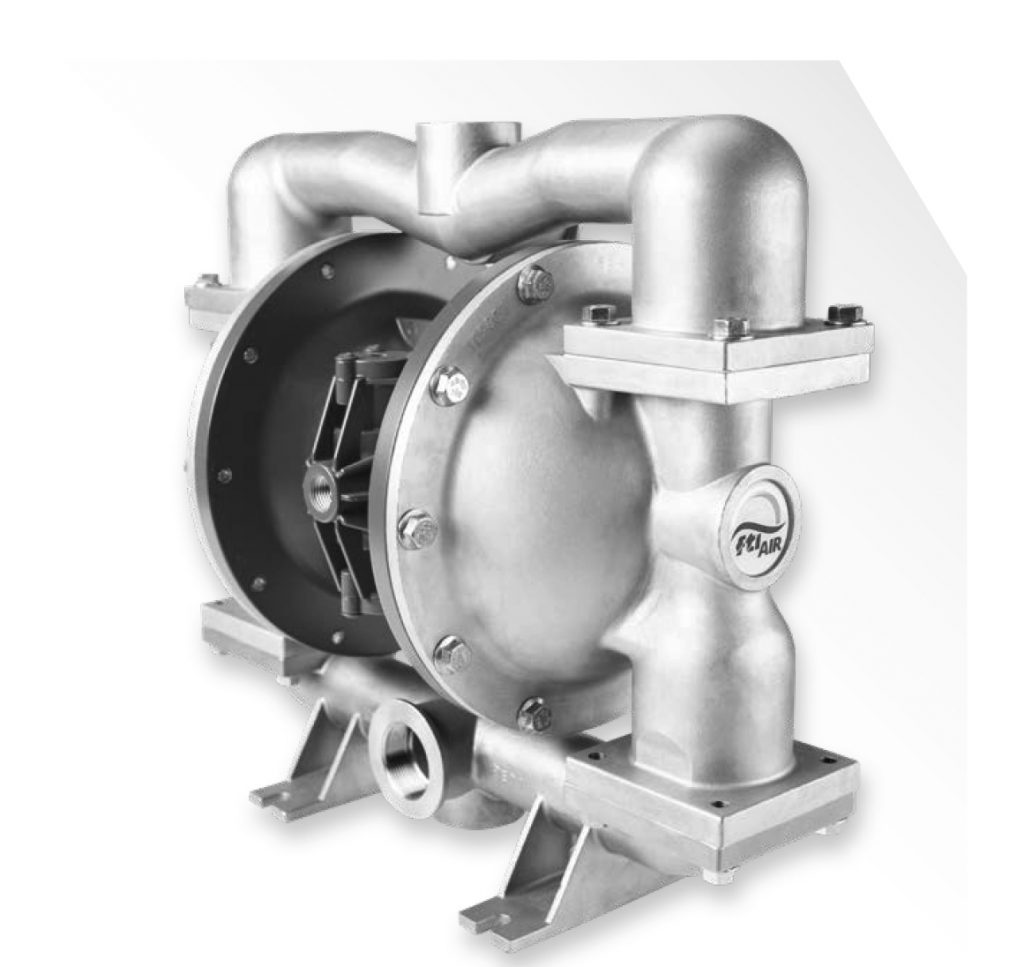Nebraska Drum Pumps
Air-Operated Diaphragm Chemical Pumps in Nebraska
Helping Industrial Nebraska displacement pump needs.
Nebraska Air-Operated Diaphragm Chemical Pump Designs & Their Advantages
Air Operated Diaphragm Chemical Pumps are a type of fluid-handling equipment that uses air pressure to move fluids. They come in different designs, such as single- and double-diaphragm models, ball valve designs, and nonmetallic wetted part constructions. These pumps are relatively affordable and versatile. They have high flow rates, can prime themselves, and can handle fluids that are abrasive or corrosive.
One key benefit is that they are self-priming and can run dry without damage, meaning they can be used even if the liquid levels fluctuate. Also, they can provide a steady flow rate with very little maintenance. Finally, since these pumps are air operated, they are easy to install and require minimal electricity usage.

Air-Operated Diaphragm Chemical Pumps are Durable, Reliable, and Easy to Maintain
These pumps can move a wide range of chemicals, both acidic and alkaline, reliably and with the least amount of maintenance. Because they are powered by air, they can be used in dangerous places because they can't explode and don't have any electrical parts. Air-Operated Diaphragm Chemical Pumps are long-lasting and reliable pieces of equipment that can be used for a long time in harsh conditions.
Not only do these pumps need little maintenance, but they also have a system of air valves that keeps the flow rate and pressure consistent. They work well to move a wide range of chemicals without the need for priming or lubrication. Air Operated Diaphragm Chemical Pumps are very easy to maintain, making them an ideal choice for many chemical applications.

Nebraska Air-Operated Diaphragm Chemical Pumps are Durable, Reliable, and Easy to Maintain
These pumps can move a wide range of chemicals, both acidic and alkaline, reliably and with the least amount of maintenance. Because they are powered by air, they can be used in dangerous places because they can't explode and don't have any electrical parts. Air-Operated Diaphragm Chemical Pumps are long-lasting and reliable pieces of equipment that can be used for a long time in harsh conditions.
Not only do these pumps need little maintenance, but they also have a system of air valves that keeps the flow rate and pressure consistent. They work well to move a wide range of chemicals without the need for priming or lubrication. Air Operated Diaphragm Chemical Pumps are very easy to maintain, making them an ideal choice for many chemical applications.
Nebraska Drum Pumps
Drum pumps are utilized for a variety of industrial, commercial, and residential purposes that all entail transferring liquids from sizable drums or containers to other places where the liquid is needed. This involves moving liquids like water, oil, gasoline, and a variety of other kinds of chemicals. Drum pumps are useful for filling containers and for use in manufacturing because they can dispense fluids in precise volumes.
Drum pumps are widely used in a variety of sectors, including industrial, agriculture, and mining. Drum pumps are used in chemical processing businesses for things like food processing and pharmaceuticals. Drums are a common container in the water treatment and construction sectors, hence these businesses also employ drum pumps.

